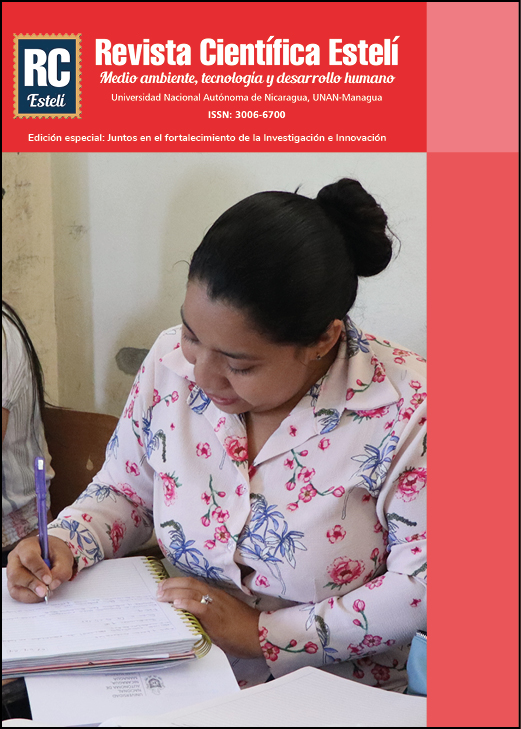Organizational proposal of the Ecomuseo Vivo as a tourism development alternative for the social participation of the territories of the UNESCO Global Geopark Río Coco Madriz, Nicaragua.
DOI:
https://doi.org/10.5377/esteli.v13i2.19805Keywords:
Sustainable development, social participation, tourism, heritage, EcomuseumAbstract
This article presents an organizational proposal of the Ecomuseo Vivo as a tourism development alternative for the social participation of the territories declared UNESCO World Geopark Rio Coco Madriz, Nicaragua. A descriptive study with a cross-sectional qualitative approach was developed. The study area consisted of five communities: Totogalpa, Somoto, San Lucas, Las Sábanas and San José de Cusmapa. Observation guides, surveys and interviews were applied, and 39 key actors of the tourism activity participated in the workshops. In this space, the favorable impact of the Ecomuseums was reflected upon and how this organizational proposal contributes to the sustainability of the aforementioned category, taking into account two factors, one oriented towards heritage education, and the other oriented towards cultural, social and economic growth in the communities. The main findings show how the characteristics that were identified in the natural heritage of the Geopark determine its meaning and relevance for the territory, from its scientific, cultural, educational value because it provides unique information about the past, present and future of the planet. In addition, the organizational proposal to create Living Eco-museums as an alternative to tourism development is important for several reasons: Living Eco-museums aim to preserve and enhance the cultural and natural heritage of a given region, actively involve the community in all stages of the process, from planning to implementation and management of the project. This promotes community ownership of their heritage and their voices, knowledge and traditions are recognized and valued. Community participation also fosters pride and a sense of belonging, strengthens social structures, and enlivens collaboration among diverse local stakeholders, which in conclusion is the main purpose and sentiment for maintaining the aforementioned status.
Downloads
271
HTML (Español (España)) 46
Published
How to Cite
Issue
Section
License
Copyright (c) 2024 Revista Científica Estelí

This work is licensed under a Creative Commons Attribution-NonCommercial-ShareAlike 4.0 International License.
© Revista Científica de FAREM-Estelí

